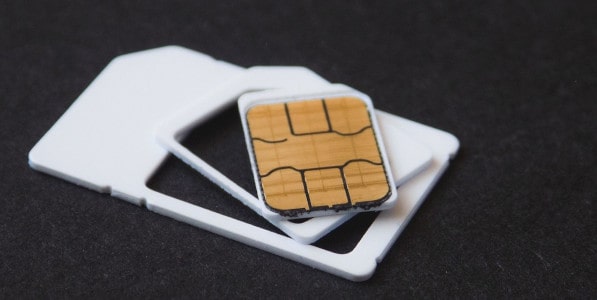
We all know that nowadays, internet access and mobile data plans are essential things to consider when visiting another country. However, even with that fact, China is a special case.
It’s no secret that Google, Facebook, Instagram, and many search engines, social media platforms, and websites are blocked in China by what’s known as the Great Firewall.
Also, many foreign cell phone services are unusable, or at least unreliable in China.
So, what are the options for tourists? Fortunately, there are ways to get reliable internet access in China for tourists.
Below are various ways to bypass the Great Firewall and to tackle these various internet issues in China.
The Great Firewall
China’s The Great Firewall is, in a nutshell, massive censorship performed by the Chinese government on the whole internet to prevent Chinese citizens from accessing any information that doesn’t support the Chinese Communist Party.

As we know, there are over 1.4 billion in China, and over 800 million of them are online daily. However, their internet’ is very different than what we have today: they can’t access Google, Youtube, Facebook, Netflix, and many more.
The Great Firewall is currently the world’s largest system of censorship.
While there are many methods employed by the Chinese government in a joint effort with the technology/telecommunications companies, here are some of the most common methods:
- IP Blocking: this method blocks access to certain IP addresses, and so if your device is using these IP addresses, you can’t connect to the server.
- URL filtering: pretty simple, this method filters for specific queries and keywords and simply blocks websites that use these words.
- DNS cache poisoning: the Great Firewall spoof’ the DNS response when you request a website’s IP address, returning an incorrect address to the user’s device.
- Corporate censorship: Chinese companies and organizations are forced to follow specific rules, and can be punished harshly if they share forbidden information.
- A.I. censorship: in the past, content censorship was manually done by civil servants who would manually monitor and edit/remove content. Nowadays, various A.I. implementations have taken over this type of work.
- VPN blocking: the Chinese government can block traffic that is trying to connect to a VPN. However, certain VPNs still work in China at this time of writing this article.
So, how will the Great Firewall affect tourists? Here are some of the most important ones:
Related reading: “How To Travel in China Without Speaking Chinese?“
No Google
Google is 100% blocked in China, including various apps and websites from Google including Google Maps, Gmail, and YouTube. So, you won’t be able to Google your tourism spots or any facts during your trips.
Many of us are so reliant on Google to find various things and also reliant on Google Maps for navigation. So, not being able to use these apps can easily confuse tourists.
No social media and messaging
Nowadays, most of us rely on social media to catch up with friends and families, and all of the major social media platforms and messaging apps (like Whatsapp or Messenger) do not work in China.

News is censored
Most external news sites do not work in China, including Wikipedia. On the other hand, Chinese newspapers and news sites are highly controlled by the government.
So, you might not be able to access any trustworthy news during your visit.
Some devices might not work at all
Although it’s pretty rare for newer smartphones, some devices might not work at all in China. This is because China uses different network frequencies than in those commonly used in other countries.
Before you visit China, make sure to check whether your device is compatible with Chinese networks.
🧧 Use our free “ChinaGoGuide” app. Your personal guide to your journey to China. Try it now!
How Tourists Can Bypass The Great Firewall
Below, we will discuss some of the best methods to access the internet in China.
Portable WiFi Rental for Tourists
There are now many services that offer portable/mobile WiFi rental for international tourists. In short, you get a portable router that can provide WiFi hotspot for your devices wherever you go, your own personal WiFi network.
Typically these companies have local offices in your home country and your local travel agencies might also offer portable WiFi rental.
They might deliver the device to your house before you visit china, or you can organize to pick it up at the airport.
They typically have set up everything for you, including setting up your VPN and answer all your questions.
So, you won’t need an international roaming on your phone or a Chinese SIM card. These might be a little more expensive than the other options, but the easiest to use.
Get a Local SIM Card
Many network services from abroad simply won’t work in China (or at least, won’t be reliable).
Also, using international roaming will generally mean a hefty fee. If you are in the U.S., for example, T-Mobile charges $2.99 per minute for calls coming in and out of China, so it’s very expensive.
Related reading: “How to set up and use WeChat and WeChat Pay as Tourists“

So, the best option (if you don’t rent a portable WiFi) is to buy a local SIM card.
These SIM cards are available just as soon as you land in China’s airports, and you can also buy SIM cards in various shopping centers. Also, you can buy SIM cards online from Amazon or other retailers so you can load it on the plane before you arrive.
If you plan on doing this, however, make sure you are buying from a reputable seller. Check whether there’s data on the card when it arrives.
These SIM cards are fairly affordable. An eight-day SIM card should only cost below $20, and a 30-day card should run around $20 to $30. However, they don’t provide unlimited use and there’s data limit (and call time limit).
Remember that your smartphone must be “unlocked” if you want to use foreign SIM cards and so you can’t use phones that are bought with contracts from the service providers.
Check out some Chinese SIM cards here – Aff.link
Setting Up VPN
There are so many blocked websites in China and depending on what you do, it may be impossible for you to work in China without a VPN (Virtual Private Network).
VPN technically masks your I.P. address so that your device appears to be connected from other countries outside China.
This, allows us to bypass the Great Firewall and access any website you want in China, including Google, YouTube, and various social media platforms.
However, keep in mind that although there are a lot of VPN apps on your phone, not all of them work well in China.
Related reading: “Cash carrying Rules to Enter/Exit in China“

Use Web-Based Proxies
Another option to bypass the Great Firewall is to use proxy sites to access your site.
In general, a proxy is a website that is located outside China, and so you can access your site through this proxy site. Proxies are typically cheaper than premium VPNs (and some are free), but they are also not very reliable and often blocked in China.
Web-based proxies don’t need you to install anything and you can access it right away from your browser. However, it’s typical for these proxies to show a lot of ads and will slow down your browsing speed while eating a lot of data.
So, they can be a short-term and emergency solution, for example, if you really need to Google something, but it’s not a long-term and reliable solution.
Use TOR Browser
TOR is a free and secure browser that masks your identity and browsing activity, and you can download it here (again, it’s free).
TOR essentially works by bouncing your signal through different relays, and so it’s much harder to detect your device and your location.
The Chinese government is actively working to block TOR, and so to make sure TOR can bypass the Great Firewall, you’ll need to run Obfsproxy with your Tor browser. Obfsproxy, in a nutshell, is a TOR subproject that masks your traffic so it looks like a regular (non-VPN and non-TOR) traffic.
You can also combine TOR with various VPNs for an even more reliable way to bypass the Great Firewall.
If you connect to your VPN before you open TOR, the website can’t see your IP address, and the ISP won’t be able to see that you are using TOR.
On the other hand, you can also open TOR before you connect to your VPN, which will encrypt your data when entering and exiting the TOR network.
This will sacrifice speed but your VPN provider can’t see your real IP address, and your ISP also can’t tell that you are using a VPN, so it is a very secure method.
Related reading: “Top 5 Famous Chinese Temples You Must Visit“
Conclusion
When it comes to bypassing the Great Firewall of China, in general, you have three main options: rent a portable WiFI, buy a reliable VPN service, and purchase a local SIM card.
While it’s true that you won’t be able to access your favorite websites and social media when visiting China, keep in mind that there are various ways to bypass these various internet issues in China.
In short, this Great Firewall shouldn’t stop you if you are planning to visit China soon. China is a great place to experience new things from its ancient history to hyper-modern cities, and your experience will definitely be worth it.
Related reading: Your Essential Guide to Navigating Chinese Social Media – Opens in new tab
Online Courses about Chinese Culture from Udemy (Aff.link)

Stay in Touch
 Join our newsletter by using the forms on this website or click here!
Join our newsletter by using the forms on this website or click here! Follow us on Google News
Follow us on Google News Follow us on Facebook
Follow us on Facebook




